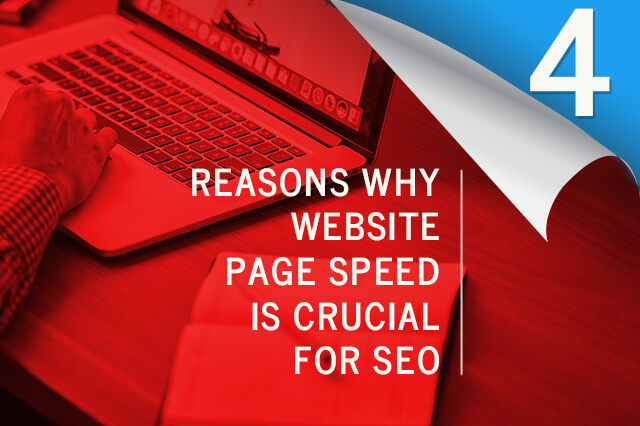4 Reasons Why Website Page Speed Is Crucial for SEO
 January 2, 2020 | By Ilfusion Team
January 2, 2020 | By Ilfusion Team
Website page speed is the time it takes for the content of your web page to be fully displayed. In this era of lightning-fast internet speeds and the growing expectations of users for convenience, page load speed is of the utmost importance
A number of factors affect the page speed of a website other than sluggish internet connection: how heavy your site elements are, the file size of your images, the number of page redirects, and your caching settings. Whatever the reasons, slow website page speed affects the overall performance of your website, and most especially when it comes to SEO.
Here are specific reasons why site speed optimization should be part of your SEO strategy.
1. Organic Search Ranking
Google puts a lot of importance on website speed and performance. For years, Google has included page load speed in their search ranking algorithms as part of their continuing efforts to improve user experience. What this means is that pages with fast loading speeds and accelerated mobile pages (AMPs) specifically are prioritized in search engine results pages (SERPs) when search queries are made through a mobile device.
Essentially, a slow page speed makes it difficult for search engines to crawl your page, and this could affect your indexing. All of this results in low organic search ranking which would badly hurt your SEO.
2. Page Views and Impressions
Web users typically expect a website to load in 2 seconds or less. More than that timeframe and 53% of mobile users will abandon a site, leading to fewer page views and impressions.
Another study adds to this statistic: even as little as a 1-second delay in page load time leads to 11% loss of page views—a significant number that could adversely affect your SEO rankings.
3. Usability and User Experience
According to a study conducted by Nielsen Norman Group, users engage more with a website when they can focus on the content and user experience instead of wasting their time waiting.
Performance equates to user experience, and the slower your page loads, the less confidence and trust your customers will have in your site.
4. Revenue and Conversion Rates
Amazon revealed that 10 years ago, they found out that a 100-millisecond delay led to a drop in revenue by 1%—this translates to millions of dollars lost for a company as huge as Amazon. Imagine the ramifications of this decade-past statistic in today’s increasingly fast digital landscape.
A more recent study conducted by Akamai and Gomez.com also found that for most companies, a 1-second delay can result in a 7% reduction in conversions. This is often the scenario for eCommerce sites when shoppers experience page load issues and ultimately leave the website, resulting in lower conversion rates.
What You Can Do to Boost Website Page Speed
Fortunately, there are online tools you can use for free that can help you determine whether your website’s page load speed is up to par.
One example is Google’s PageSpeed Insights. Aside from a detailed analysis of your website’s page speed performance, Google also provides suggestions on how to make your page faster.
A few things you can to optimize page load speeds:
- Compress web image sizes using tools such as TinyPNG and Compressor.io.
- Place JS and CSS in external files, both to boost page load time and for easier site maintenance.
- Keep plugins at a minimum; as much as possible, use built-in plugins to conserve website bandwidth.
- Optimize caching; it is recommended to use expires headers for static website components and cache-control headers for dynamic components.
- Avoid redirects whenever possible, and reduce HTTP requests.
Need Help with SEO and Web Development/Maintenance?
Every second counts when it comes to page load times, and every millisecond of delay could affect your business. If you need help with any of your SEO needs, or with web development and/or maintenance, Ilfusion has the expertise and the right people to help you reach your goals.
Give us a call at 888-420-5115, or send us an email to creative@ilfusion.com to get started.
Filed in: Articles

